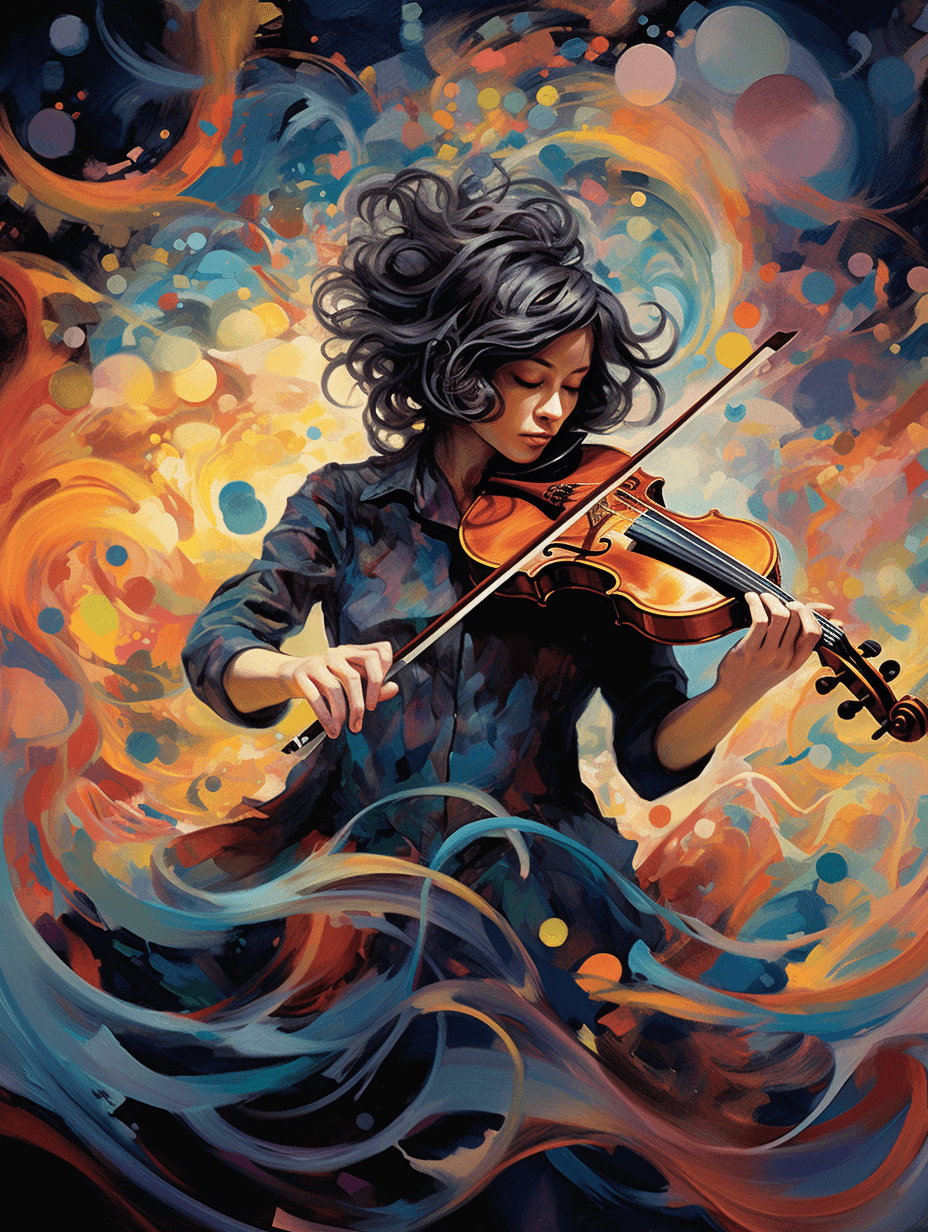Music
Music is an art form and cultural activity whose medium is sound. While the specific definition of music varies according to culture, the common elements include pitch (which governs melody and harmony), rhythm (and its associated concepts of tempo, meter, and articulation), dynamics (loudness and softness), and the sonic qualities of timbre and texture. The word music is derived from the Greek word mousike, which means "(art) of the Muses".
History and Development
The origins of music are lost in the annals of prehistory, though every known culture on Earth has had its own tradition of music. Instruments, songs, and musical styles have evolved over millennia, but the core purpose of music—to express and modulate emotion, tell stories, or simply provide enjoyment—has remained consistent.
- Prehistoric and Ancient Music: The oldest known song, the Hurrian song, dates back to around 1400 BCE. However, before written records, music was passed down orally, and its origins likely trace back to the singing and rhythm-making of our early ancestors.
- Medieval Music (500–1400 AD): As written notation developed in the Christian West, songs of worship were transcribed and standardized across the Christian world. Secular (non-religious) music became more widespread in the Late Middle Ages.
- Renaissance Music (1400–1600): With the invention of printing, music and musical ideas spread more quickly. Polyphony, in which multiple independent melodies are played simultaneously, became more complex.
- Baroque Music (1600–1750): Characterized by the use of contrast, such as between loud and soft or solo and ensemble, and more expressive melodies and harmonies.
- Classical Music (1750–1820): A period epitomized by the music of composers like Mozart, Beethoven, and Haydn. It emphasized clarity, order, and balance in music.
- Romantic Music (1820–1910): A response against the restrained classical period, it emphasized emotion and individualism.
- 20th and 21st Century: This era saw a burst of musical styles and genres, from jazz and blues to rock, pop, hip-hop, and electronic music.

Elements
- Rhythm: It's about the timing of sounds; when they start, when they stop, and their duration.
- Melody: A sequence of single notes that is musically satisfying.
- Harmony: The use of simultaneous pitches (notes or chords).
- Timbre: The character or quality of a musical sound.
- Form: The structure or plan by which individual musical events are placed.
Influence and Impact
Music is deeply rooted in human culture and history, serving purposes both profane and sacred. It has the power to stir emotions, from the heights of joy to the depths of sorrow. Across all societies, music plays a key role in ritual, celebration, expression, and identity.
Moreover, music has profound cognitive benefits. It aids memory, enhances concentration, and even supports physical coordination. For these reasons and more, music education is viewed as essential by many cultures.
Genres and Styles
There's an immense diversity in music genres globally:
- Classical: Includes a variety of sub-genres such as symphony, opera, and chamber music.
- Popular Music: Encompassing a range of genres including rock, pop, hip-hop, and country.
- Traditional and Folk: Rooted in regional culture and often passed down orally.
- Religious: Includes hymns, gospel, and other music associated with worship.
- Experimental: Pushes the boundaries of what is considered music.
- Electronic: Exploits electronic technology to produce sound.

Conclusion
Music is a reflection of society, mirroring its joys, challenges, and changes. Whether one is a passive listener or an active participant, music has a unique ability to touch souls, cross boundaries, and bring people together.
